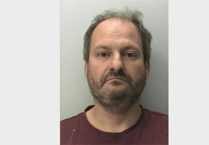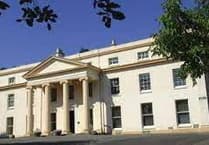The NSPCC is appealing for more volunteers in Devon to help teach primary school children about different types of abuse.
The children’s charity funds a Schools Service across Devon, which sees trained members of staff and volunteers deliver Speak Out Stay Safe assemblies to children.
The assemblies are tailored to different year groups to ensure the content is age-appropriate, and children are helped to identify a trusted adult they can speak to if they have worries about themselves or a friend.
Schools Service area coordinator for Devon Colette Hudson said: “The children learn about physical, sexual and emotional abuse, as well as neglect and bullying. We have some wonderful volunteers who make it possible for us to deliver these important messages to school children across Devon.
“They are dedicated, enthusiastic and have a passion for keeping children safe. We are looking for more volunteers to help us deliver this service.”
The last academic year saw 100 schools in Devon welcome NSPCC staff and volunteers to deliver the assemblies to almost 15,000 children, with the help of the charity’s mascot Buddy.
Colette added: “On average, two children in every classroom have suffered abuse or neglect, so we aim to visit every primary school across Devon and Plymouth every three years to deliver our Speak Out Stay Safe programme.
“We know that one in three children who have been sexually abused by an adult did not tell someone at the time. Our assemblies and workshops empower a generation of children to know about the different kinds of abuse and how they can talk to a trusted adult if they are concerned about themselves or a friend.”
Former deputy headteacher Jill Cooper, who lives in Modbury, volunteered for six years with the Young Witness Support Service before finding out about the NSPCC’s Schools Service programme through a friend.
She has been volunteering for Schools Service for six years and delivers assemblies in Plymouth, South East Cornwall, South Hams and Torbay.
“We talk with children about the different types of abuse,” Jill explains.
“There was one little boy recently who spoke out about how his parents used to fight in front of him before they were divorced. It wasn’t something his teacher was aware of, but is now. There was a need in that child that wasn’t being recognised.
“I would say that for most children who act out, or misbehave, there is a reason for it.
“The children really love [NSPCC mascot] Buddy. When I visit schools I’ve been to before, the children can’t wait to greet him. They have such a positive attitude.
“We can’t deliver the sessions without the teacher present. They are the ones who know the students and can interpret what a child’s body language might say.
“Some teachers are frightened about talking to students about abuse for a number of reasons.
“Our main role is to open the conversation up, so that teachers can go on to having those discussions with their pupils afterwards.
“The children are more likely to disclose to their teachers, but we can give their teachers a way to talk to them, by saying ‘remember what Jill was telling us the other day’.
“Being involved in the Schools Service is something I love doing.
“I like being around young people because that’s something I missed when I left teaching. I get a lot out of working with other volunteers.
“They are all different ages, they have fascinating and different backgrounds.”
The assemblies are for children aged five-11 and teach them about safeguarding and abuse in a lively, interactive and memorable way.
They learn about the NSPCC’s Childline service and how it can support them at any time of day or night. Older students, in Years 5 and 6, take part in additional workshops that go into more details, looking at different scenarios and deciding whether they are okay or not. Teachers are present throughout the assemblies and workshops, which are free for all primary schools.
Colette said: “It takes a special kind of person to volunteer for our Schools Service. It can be a difficult subject for adults to broach with these children, so we need volunteers who are comfortable doing just that to help teachers continue these important conversations with their students.”
If you would like to find out more about how you can volunteer with the NSPCC’s Schools Service call 02920 108133 or email [email protected].
For more information on how you can fundraise for the NSPCC, call Alison Armer, community fundraising manager for Cornwall, Plymouth and Devon on 07779341767 or email [email protected].
Anyone with any concerns about the welfare of a child can call the NSPCC Helpline on 0808 8005000 or visit nspcc.org.uk for advice. Children can call Childline on 0800 1111 or visit childline.org.uk. Both are free and available 365 days a year.




